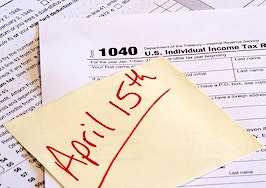Jim Chapin, a California real estate broker, used his Toyota Sequoia SUV for his real estate business during 2009.
He figured that he drove a total of 11,135 miles for business that year and deducted $5,309 for car and truck expenses.
The IRS audited him and disallowed the entire deduction, and also added on a 20 percent negligence penalty. Chapin appealed to the Tax Court and lost.
Here’s what he did wrong:
Mistake No. 1: Not keeping a business mileage log
Business mileage deductions are closely scrutinized by the IRS because they are commonly abused by taxpayers. You must keep a record of:
- your mileage
- the dates of your business trips
- the places you drove for business, and
- the business purpose for your trips.
The IRS wants to know the total number of miles you drove during the year for business, commuting and personal driving other than commuting. By far the best way to prove to the IRS how much you drove for business is to keep contemporaneous records. “Contemporaneous” means your records are created each day you drive for business, or soon thereafter.
To keep track of your driving, you can use either a paper mileage logbook that you keep in your car or an electronic application. Logbooks are available in any stationery store and there are dozens of apps that you can use to record your mileage with an iPhone or similar device. There are even apps that use GPS tracking to automatically calculate your mileage for each trip.
However, like many people, Jim Chapin kept no contemporaneous records of his driving.
Mistake No. 2: Inadequate reconstructed records
Although a mileage log you keep every day is by far the best way to substantiate your car deductions, it isn’t absolutely required. If you fail to keep a log, you can reconstruct your mileage records in the event of an IRS audit. However, reconstructed records are inherently suspect and must be backed up by other corroborating evidence with, in the words of the Tax Court, “a high degree of probative value.”
Jim Chapin failed to do this. He created a handwritten chart with a list of places he claimed to have driven during March 2009. He also created an itemized list of his 2009 expenses for fuel, insurance, parts, registration and repairs. However, neither list indicated any business purpose for the trips, nor reported the mileage traveled or the amount of each trip expense.
Chapin apparently had no other documentary evidence to back up his lists, such as receipts, or calendar or appointment book entries. The Tax Court held that Chapin’s records weren’t sufficient and denied his entire $5,309 deduction.
Mistake No. 3: Mouthing off to the Tax Court
To add insult to injury, the Tax Court held that Chapin was liable for a 20 percent negligence penalty. The court found that his failure to maintain records to support his deductions was negligence.
Chapin didn’t help his case when he told the court that “no one keeps records in accordance with the IRS code.” Understandably, neither the IRS nor the Tax Court will accept the argument that “everyone does it.” (Chapin v. Comm’r, T.C. Summ. Op. 2014-31.)
Stephen Fishman is a tax expert, attorney and author who has published 20 books, including “The Real Estate Agent’s Tax Deduction Guide,” “Working for Yourself,” “Deduct It!” and “Working with Independent Contractors.” His website can be found at fishmanlawandtaxfiles.com.







